
The Enchanting Labyrinth of Stone Town: A Journey Through Time
Stone Town, the old part of Zanzibar City, is a captivating blend of Persian, Arab, Indian, and European influences. This UNESCO World Heritage site is a maze of narrow alleys, bustling bazaars, and ancient architecture that transports visitors back in time. The town's rich history is palpable, with every turn revealing a new story etched in the stone walls and ornate wooden doors. As you wander through Stone Town, you'll encounter the House of Wonders, the largest and tallest building in the area, offering a glimpse into Zanzibar's storied past. Nearby, the Old Fort stands as a testament to the island's resilience, having withstood various invasions over centuries. The town's numerous mosques, churches, and temples reflect its diverse cultural tapestry, providing a spiritual journey alongside the physical one. The vibrant Darajani Market is a must-visit for those seeking an authentic taste of local life. Here, you can find fresh produce, spices, and traditional crafts. The market's lively atmosphere is a sensory delight, with the aroma of exotic spices filling the air. For a more relaxed experience, head to the Forodhani Gardens in the evening to enjoy the local seafood delicacies at the night market while watching the sun set over the Indian Ocean.
Local tips in Stone Town
- Wear comfortable shoes; the narrow, uneven alleys are best explored on foot.
- Carry a map or use a GPS app; it's easy to get lost in the labyrinthine streets.
- Visit the Darajani Market early in the morning to avoid the crowd and get the freshest produce.
- Respect local customs; dress modestly, especially when visiting religious sites.
- Bargain at the markets; it's a common practice and can be part of the fun.
The Enchanting Labyrinth of Stone Town: A Journey Through Time
Stone Town, the old part of Zanzibar City, is a captivating blend of Persian, Arab, Indian, and European influences. This UNESCO World Heritage site is a maze of narrow alleys, bustling bazaars, and ancient architecture that transports visitors back in time. The town's rich history is palpable, with every turn revealing a new story etched in the stone walls and ornate wooden doors. As you wander through Stone Town, you'll encounter the House of Wonders, the largest and tallest building in the area, offering a glimpse into Zanzibar's storied past. Nearby, the Old Fort stands as a testament to the island's resilience, having withstood various invasions over centuries. The town's numerous mosques, churches, and temples reflect its diverse cultural tapestry, providing a spiritual journey alongside the physical one. The vibrant Darajani Market is a must-visit for those seeking an authentic taste of local life. Here, you can find fresh produce, spices, and traditional crafts. The market's lively atmosphere is a sensory delight, with the aroma of exotic spices filling the air. For a more relaxed experience, head to the Forodhani Gardens in the evening to enjoy the local seafood delicacies at the night market while watching the sun set over the Indian Ocean.
Iconic landmarks you can’t miss
Old Fort
Explore the Old Fort of Zanzibar, a captivating historical fortress showcasing the island's rich cultural heritage and stunning ocean views.
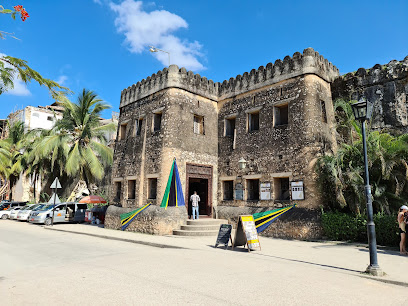
Old Slave Market/Anglican Cathedral
Discover the rich history of Zanzibar at the Old Slave Market and Anglican Cathedral, a poignant museum that tells the story of resilience against adversity.
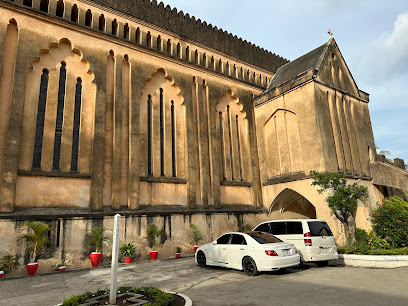
Freddie Mercury Museum
Discover the vibrant legacy of Freddie Mercury in Zanzibar's captivating museum, filled with memorabilia and the essence of rock history.
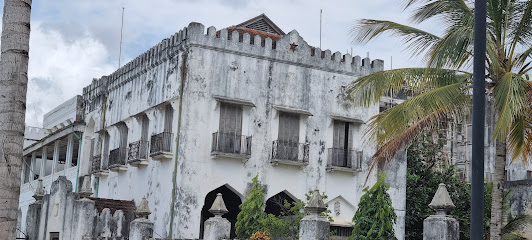
House of Wonders
Discover the House of Wonders in Zanzibar, where history, culture, and breathtaking architecture come together in an unforgettable museum experience.
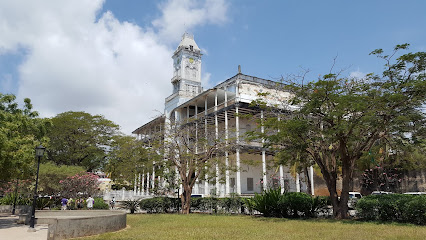
Jaw's Corner
Discover the rich heritage and vibrant atmosphere of Jaw's Corner, a historical landmark in the heart of Zanzibar's Stone Town.
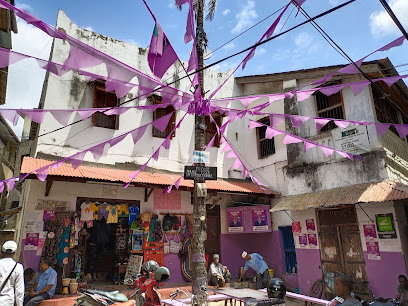
Zanzibar Stone Town Heritage Society (ZSTHS)
Explore Zanzibar's vibrant history and culture at the Stone Town Heritage Society, a UNESCO World Heritage site that showcases the island's unique heritage.
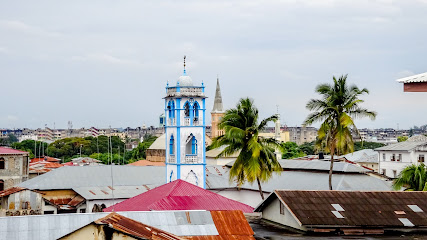
Stone town Zanzibar
Explore the rich history and vibrant culture of Stone Town, Zanzibar, a UNESCO World Heritage site filled with stunning architecture and lively markets.
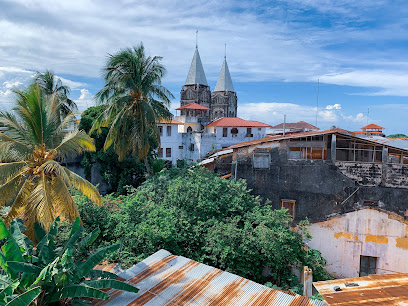
Zanzibar Cannons
Explore the rich maritime history of Zanzibar at the Zanzibar Cannons museum, featuring historic artillery and captivating stories from the island's past.
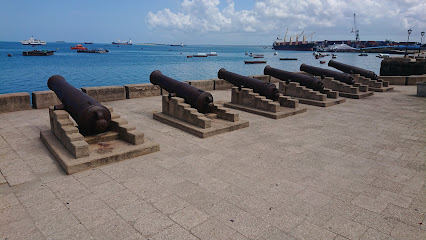
Site of Liverpool Scoreboard (public landmark)
Experience the historical charm of the Liverpool Scoreboard in Stone Town, Zanzibar, a landmark that reflects the island's rich cultural tapestry.
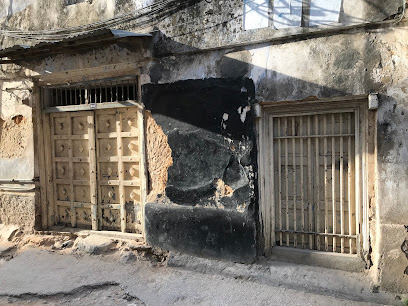
Vicoli e Porte di Stone Town
Explore the enchanting Vicoli e Porte di Stone Town, where history, culture, and charm intertwine in the heart of Zanzibar.
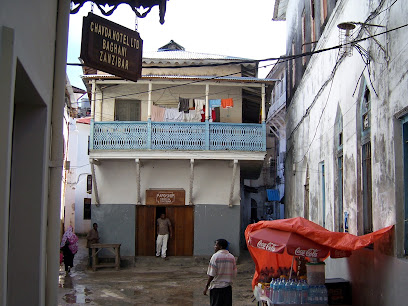
Unmissable attractions to see
Old Portuguese Arch
Explore the Old Portuguese Arch in Zanzibar, a stunning historical landmark that showcases the island's rich cultural heritage and architectural beauty.
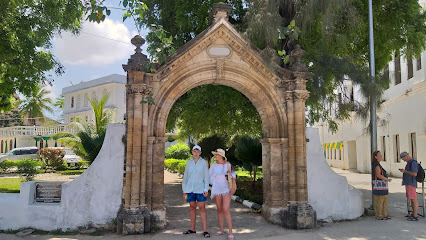
Hamamni Persian Baths
Discover the historical essence of Zanzibar at Hamamni Persian Baths, a unique site blending culture and relaxation in Stone Town.
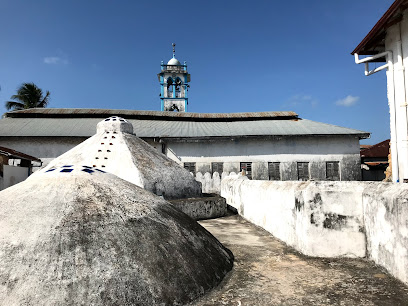
Prison island zanzibar
Discover the historical charm and natural beauty of Prison Island, Zanzibar, a captivating destination for history buffs and nature lovers alike.
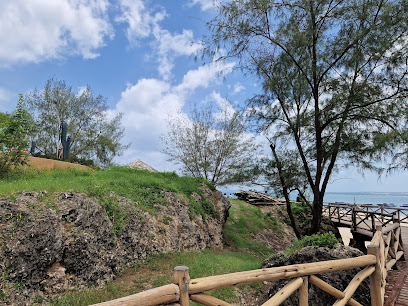
Essential places to dine
Lukmaan Restaurant
Experience authentic Zanzibari flavors at Lukmaan Restaurant in Stone Town – where culinary tradition meets warm hospitality.
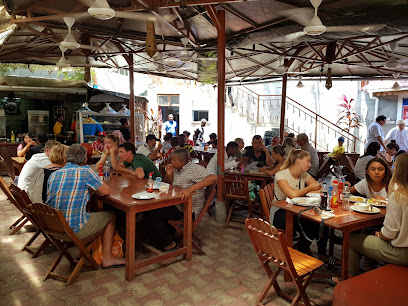
Beach House Zanzibar
Experience the fusion of international cuisine and local flavors at Beach House Zanzibar, a premier dining destination in Stone Town.
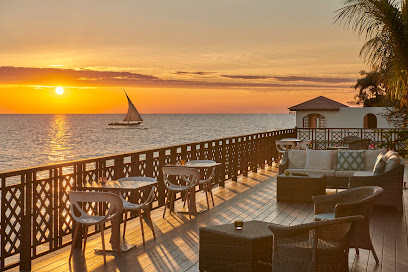
Masa Japanese Restaurant
Experience authentic Japanese cuisine at Masa Japanese Restaurant in Stone Town, Zanzibar – where flavor meets tradition.
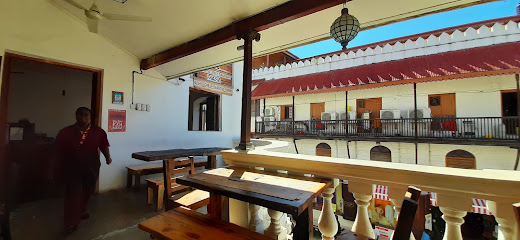
Secret Garden
Immerse yourself in Zanzibar's culinary delights at Secret Garden - a serene oasis offering local flavors amidst lush greenery.
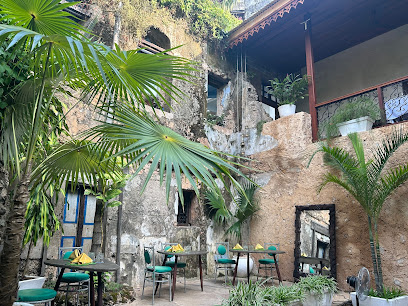
Ocean Grill Stone Town Beach
Experience the essence of Zanzibar at Ocean Grill Stone Town Beach – where fresh seafood meets stunning ocean views in a laid-back atmosphere.
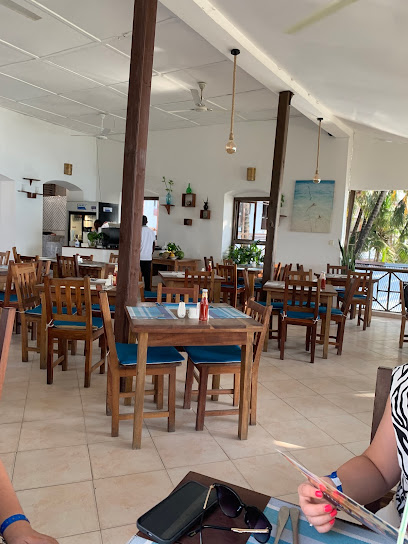
New Monsoon Restaurant
Experience exquisite dining at New Monsoon Restaurant in Forodhani Garden, where local flavors meet international cuisine amidst stunning ocean views.
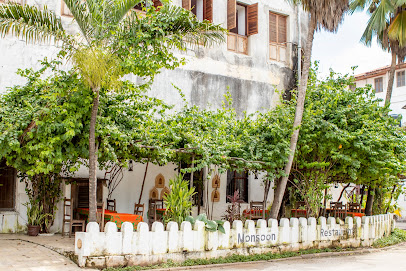
Chinese Restaurant
Discover the exquisite taste of authentic Chinese cuisine in the heart of Zanzibar's historic Stone Town.
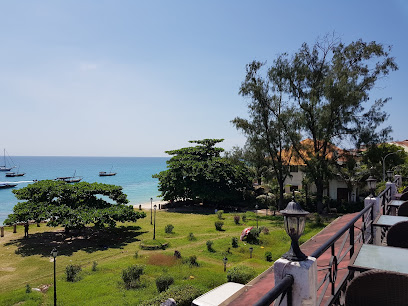
The Terrace Restaurant
Experience authentic Zanzibari cuisine at The Terrace Restaurant in Stone Town – where every meal is a taste of paradise.
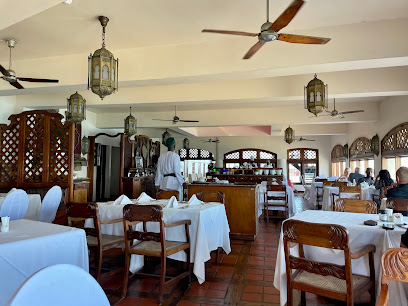
Dolphin Restaurant
Experience authentic Zanzibari flavors at Dolphin Restaurant in Stone Town - where every dish tells a story.
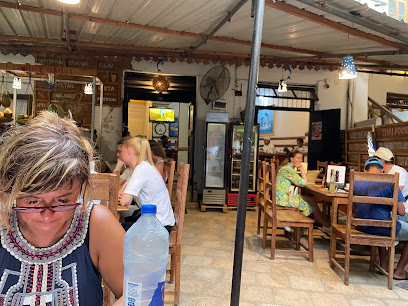
Old Castle Zanzibar
Discover authentic Zanzibari cuisine at Old Castle Zanzibar - where tradition meets flavor in an enchanting atmosphere.
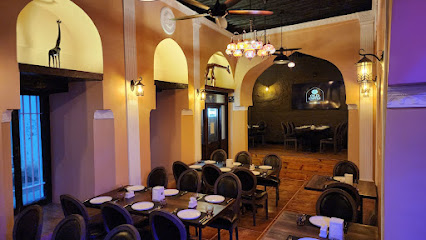
Markets, malls and hidden boutiques
Zanzibar Spice Community Shop
Explore the vibrant Zanzibar Spice Community Shop, a must-visit destination for spice lovers and cultural enthusiasts in the heart of Stone Town.
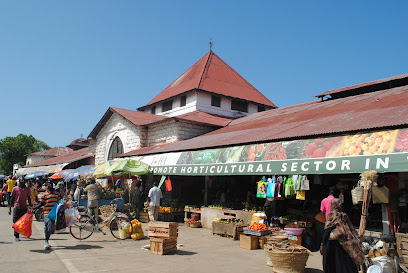
Memories Of Zanzibar
Explore the vibrant culture of Zanzibar through authentic souvenirs at Memories of Zanzibar, where every purchase tells a story.
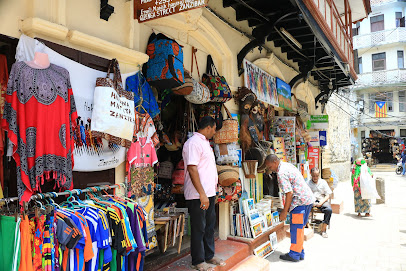
The Zanzibar Curio Shop
Explore the vibrant culture of Zanzibar through unique antiques and handcrafted treasures at The Zanzibar Curio Shop.
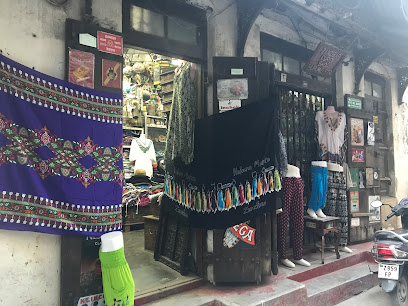
Stonetown Traders
Explore Stonetown Traders in Zanzibar for unique crafts, textiles, and souvenirs amidst vibrant local culture.
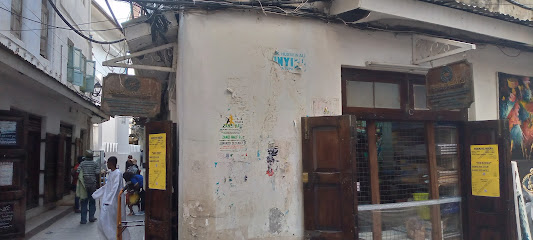
Zivansh Concept Store
Explore Zivansh Concept Store in Zanzibar for unique gifts, fashion, and local artistry that captures the spirit of this beautiful island.
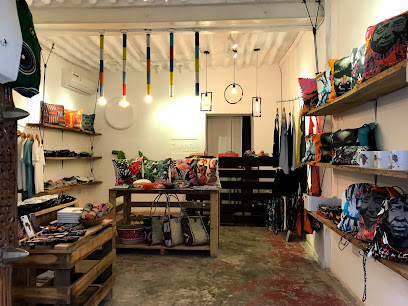
Treasures of Zanzibar
Explore the vibrant local crafts and unique clothing at Treasures of Zanzibar, where authentic Zanzibari culture comes to life.
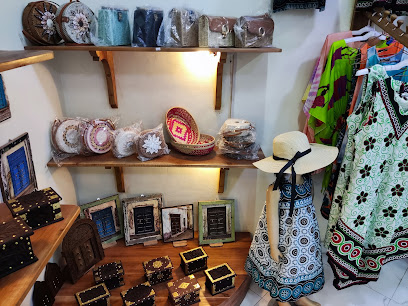
Monica Boutique
Experience the vibrant fashion and rich culture of Zanzibar at Monica Boutique, a hidden gem in the heart of Stone Town.
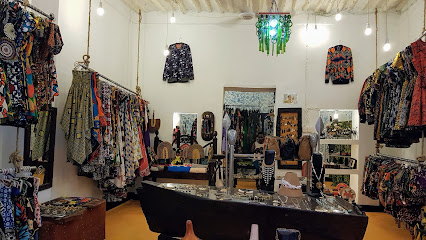
The Gallery Curio Shop
Explore unique treasures at The Gallery Curio Shop in Stone Town, Zanzibar - your gateway to authentic local craft and culture.
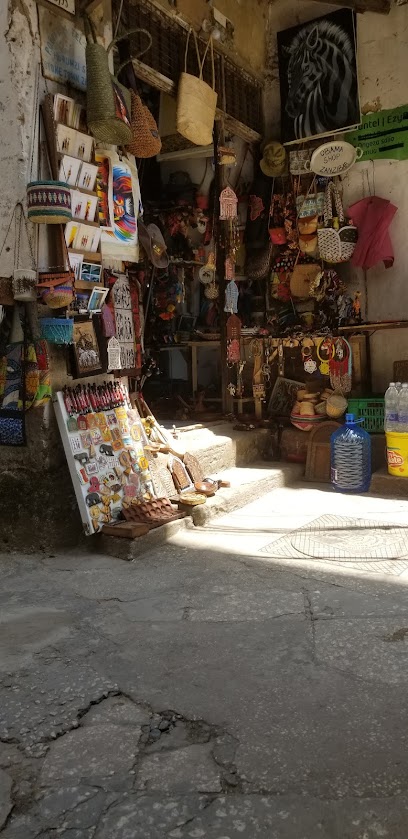
The Wonders Boutique
Discover unique local crafts and fashion at The Wonders Boutique in Stone Town, Zanzibar, where every purchase tells a story.
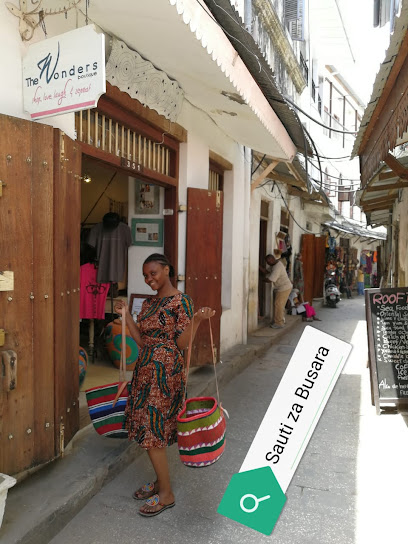
Chimlo’s Curio Shop
Discover the unique charm of Chimlo’s Curio Shop in Stone Town, Zanzibar, where traditional craftsmanship meets modern boutique shopping.
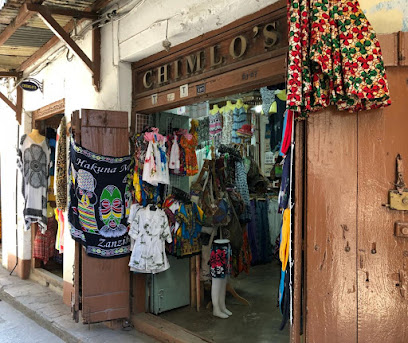
Essential bars & hidden hideouts
6 Degrees South
Discover the flavors of Zanzibar at 6 Degrees South, a culinary haven in the heart of Stone Town, offering a feast for the senses.
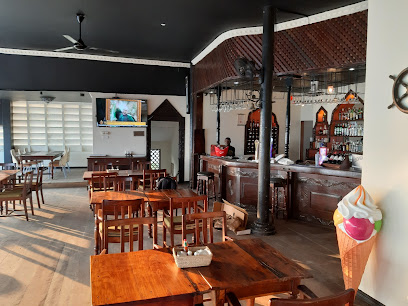
Mercury's Bar
Discover Zanzibar's lively essence at Mercury's Bar, where delicious cuisine meets stunning waterfront views in the heart of Stone Town.
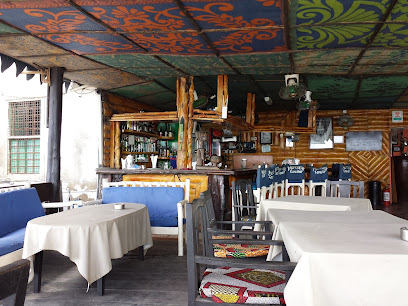
Patamu (Tatu)
Discover the vibrant flavors and lively atmosphere of Patamu (Tatu) in Stone Town, Zanzibar, where every meal is a celebration of local cuisine.
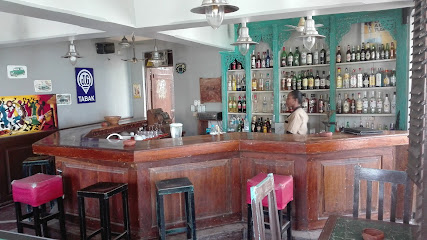
The Sunset Bar - Africa House Hotel
Experience stunning ocean views and exquisite cuisine at The Sunset Bar - Africa House Hotel in Zanzibar, a dining gem in Stone Town.
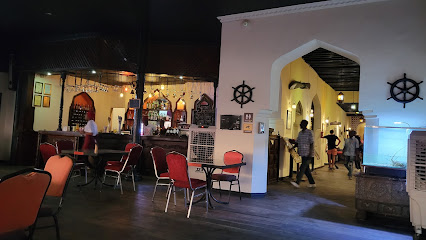
Vivi Café
Discover the flavors of Zanzibar at Vivi Café, where local cuisine meets a warm and inviting atmosphere.
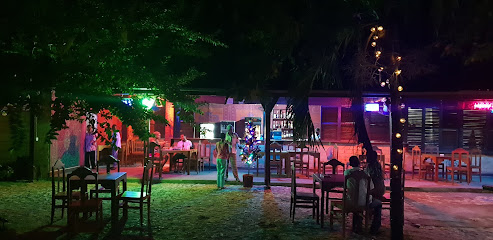
Masahani bar
Experience the vibrant spirit of Zanzibar at Masahani Bar, where stunning ocean views meet exquisite cocktails in a lively atmosphere.
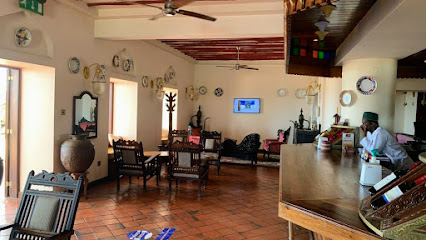
Floating Bar
Discover the Floating Bar in Zanzibar, a tropical oasis on the water, perfect for relaxation, stunning views, and refreshing cocktails.
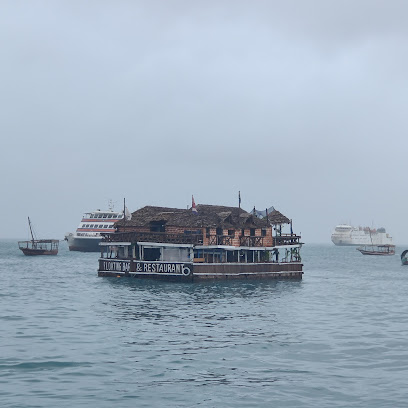
Baraza Shisha Bar
Experience the vibrant nightlife of Zanzibar at Baraza Shisha Bar, where relaxation meets cultural charm in the heart of Stone Town.
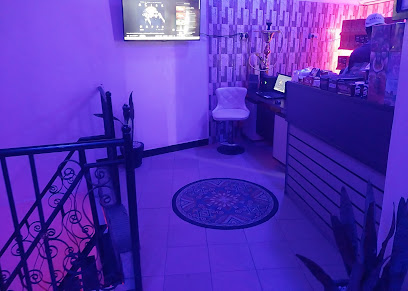
The best local breakfast bar
Experience the authentic flavors of Zanzibar at this charming breakfast bar, a local favorite for delicious morning delights.
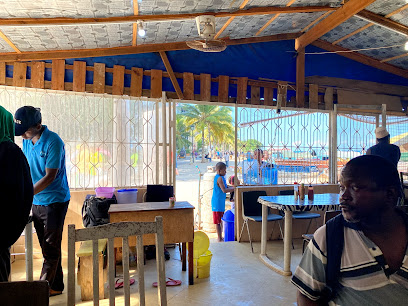
Kisimani Bar
Discover the vibrant nightlife of Zanzibar at Kisimani Bar, where local culture meets a laid-back atmosphere in the heart of Stone Town.

Local Phrases
-
- HelloJambo
[jahm-boh] - GoodbyeKwaheri
[kwah-heh-ree] - YesNdiyo
[n-dee-yoh] - NoHapana
[hah-pah-nah] - Please/You're welcomeTafadhali
[tah-fah-dah-lee] - Thank youAsante
[ah-sahn-teh] - Excuse me/SorrySamahani
[sah-mah-hah-nee] - How are you?Habari gani?
[hah-bah-ree gah-nee] - Fine. And you?Nzuri. Na wewe?
[n-zoo-ree. nah weh-weh] - Do you speak English?Unasema Kiingereza?
[oo-nah-say-mah kee-een-geh-reh-zah] - I don't understandSielewi
[see-eh-leh-wee]
- HelloJambo
-
- I'd like to see the menu, pleaseNingependa kuona menyu, tafadhali
[nee-ngheh-pehn-dah kwoh-nah meh-nyoo, tah-fah-dah-lee] - I don't eat meatSiuli nyama
[see-oo-lee nyah-mah] - Cheers!Afya!
[ah-fyah] - I would like to pay, pleaseNingependa kulipa, tafadhali
[nee-ngheh-pehn-dah koo-lee-pah, tah-fah-dah-lee]
- I'd like to see the menu, pleaseNingependa kuona menyu, tafadhali
-
- Help!Msaada!
[msah-ah-dah] - Go away!Ondoka!
[ohn-doh-kah] - Call the Police!Piga simu polisi!
[pee-gah see-moo poh-lee-see] - Call a doctor!Piga simu daktari!
[pee-gah see-moo dahk-tah-ree] - I'm lostNimepotea
[nee-meh-poh-teh-ah] - I'm illNinaumwa
[nee-nah-oom-wah]
- Help!Msaada!
-
- I'd like to buy...Ningependa kununua...
[nee-ngheh-pehn-dah koo-noo-noo-ah] - I'm just lookingNatazama tu
[nah-tah-zah-mah too] - How much is it?Ni bei gani?
[nee bay gah-nee] - That's too expensiveHilo ni ghali sana
[hee-loh nee gah-lee sah-nah] - Can you lower the price?Unaweza kupunguza bei?
[oo-nah-weh-zah koo-poon-goo-zah bay]
- I'd like to buy...Ningependa kununua...
-
- What time is it?Saa ngapi?
[sah-ah ngah-pee] - It's one o'clockSaa moja
[sah-ah moh-jah] - Half past (10)Nusu saa kumi
[noo-soo sah-ah koo-mee] - MorningAsubuhi
[ah-soo-boo-hee] - AfternoonMchana
[m-chah-nah] - EveningJioni
[joh-nee] - YesterdayJana
[jah-nah] - TodayLeo
[leh-oh] - TomorrowKesho
[keh-shoh] - 1Moja
[moh-jah] - 2Mbili
[m-bee-lee] - 3Tatu
[tah-too] - 4Nne
[n-neh] - 5Tano
[tah-noh] - 6Sita
[see-tah] - 7Saba
[sah-bah] - 8Nane
[nah-neh] - 9Tisa
[tee-sah] - 10Kumi
[koo-mee]
- What time is it?Saa ngapi?
-
- Where's a/the...?Iko wapi...?
[ee-koh wah-pee] - What's the address?Anuani ni gani?
[ah-noo-ah-nee nee gah-nee] - Can you show me (on the map)?Unaweza kunionyesha (kwenye ramani)?
[oo-nah-weh-zah koo-nee-oh-nyeh-shah (kweh-neh rah-mah-nee)] - When's the next (bus)?Basi lifuata lini?
[bah-see lee-foo-ah-tah lee-nee] - A ticket (to ....)Tiketi (kwenda ...)
[tee-keh-tee (kwehn-dah)]
- Where's a/the...?Iko wapi...?
History of Stone Town
-
Stone Town, the historical heart of Zanzibar City, has its origins in the late 17th century when it was established as a trading port by Arab settlers. The settlement quickly grew due to its strategic location along the Indian Ocean trade routes, becoming a melting pot of cultures, including Arab, Persian, Indian, and later European influences.
-
In the 19th century, Stone Town became the capital of the Sultanate of Oman, leading to a period of immense prosperity and architectural development. The sultans built grand palaces, mosques, and public buildings, many of which still stand today, showcasing intricate coral stone architecture and Swahili influences.
-
Zanzibar earned the nickname 'Spice Island' due to its thriving spice trade, particularly in cloves, nutmeg, and cinnamon. The spice trade not only enriched the local economy but also attracted traders from all over the world, further diversifying the cultural tapestry of Stone Town.
-
The late 19th century marked a pivotal moment in Stone Town's history with the abolition of the slave trade. Zanzibar was a major hub for the slave trade, and the end of this practice in 1873 significantly impacted the local economy and social structures, leading to a reorientation towards legitimate trade.
-
In the late 19th century, Zanzibar became a British protectorate. This period saw significant changes in governance and infrastructure, including the introduction of Western education and legal systems, which shaped the modern identity of Stone Town while also sparking nationalist movements.
-
Following independence in the 1960s, Stone Town experienced a cultural renaissance as the local population sought to reclaim and celebrate its rich heritage. The area was designated a UNESCO World Heritage Site in 2000, recognizing its unique architectural and historical significance, and efforts have since been made to preserve its cultural identity amidst modernization.
Stone Town Essentials
-
Stone Town is easily accessible from other neighborhoods in Zanzibar City. From the Zanzibar International Airport, you can take a taxi or a pre-arranged shuttle service to reach Stone Town, which is approximately 8 kilometers away. Local buses, known as daladalas, also operate from the airport to the city center, providing a budget-friendly option for travelers.
-
Stone Town is best explored on foot due to its narrow winding streets and rich history. Walking allows you to fully appreciate the architecture and local culture. For longer distances, you can use taxis, which are widely available. Note that there are no trains or bicycles for public use in Stone Town, but motorbike taxis (boda-boda) can be hired for quick rides.
-
Stone Town is generally safe for tourists, but it's wise to remain vigilant, especially at night. Areas around the Old Fort and the waterfront can be less secure after dark. Avoid displaying valuables and keep your belongings secure. Be cautious in quieter alleyways, as petty theft can occur. It's recommended to stick to well-lit and populated areas during evening walks.
-
In case of emergency, dial 112 for police assistance or 0786 200 200 for medical emergencies. Local hospitals, such as Mnazi Mmoja Hospital, are available for urgent care. It's advisable to have travel insurance that covers emergency situations. For minor health issues, pharmacies can be found throughout Stone Town.
-
Fashion: Do dress modestly and respect local customs, particularly when visiting mosques. Women should avoid revealing clothing. Religion: Do show respect by covering shoulders and knees in religious sites. Public Transport: Do respect local customs, give up your seat for the elderly, and avoid loud conversations. Don't eat or drink on public transport. Greetings: Do greet with a friendly 'Jambo' or 'Habari' and a handshake. Eating & Drinking: Do try local dishes and accept food offerings politely. Don't waste food or refuse invitations to share a meal, as this is considered rude.
-
To experience Stone Town like a local, visit the Darajani Market for fresh produce and local snacks. Engage with vendors and learn about local cuisine. Attend cultural events or traditional music performances when possible. Take time to explore hidden alleys and lesser-known sites for a more authentic experience. Consider visiting local cafes, where you can enjoy coffee and watch the world go by.
Nearby Cities to Stone Town
-
Things To Do in Zanzibar City
-
Things To Do in Dar es Salaam
-
Things To Do in Tanga
-
Things To Do in Morogoro
-
Things To Do in Diani Beach
-
Things To Do in Mombasa
-
Things To Do in Malindi
-
Things To Do in Moshi
-
Things To Do in Dodoma
-
Things To Do in Arusha
-
Things To Do in Iringa
-
Things To Do in Lamu
-
Things To Do in Singida
-
Things To Do in Nairobi
-
Things To Do in Naivasha













